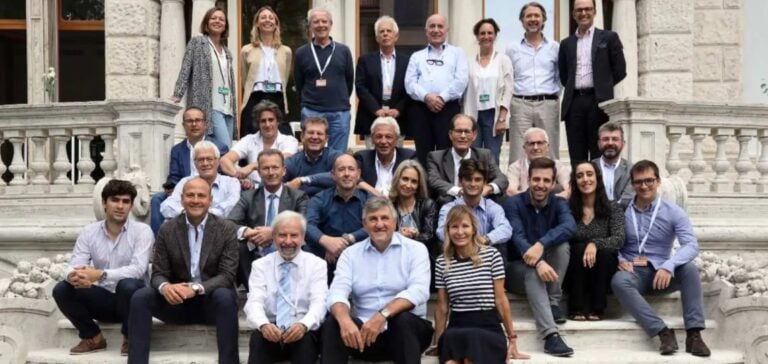MAIRE S.p.A., through its subsidiary NEXTCHEM, and newcleo Holding SA announce the creation of a joint venture to develop an advanced modular reactor (AMR) with a capacity of 200 MWe, marking a significant milestone for Italy. This project aligns with the nuclear relaunch strategy led by Giorgia Meloni’s government, aimed at strengthening energy sovereignty while addressing climate challenges.
A return to nuclear energy in Italy
This partnership represents a pivotal step for Italy as it reintroduces nuclear energy into its energy mix after decades of absence. The LFR-AS-200 reactor, based on Lead-cooled Fast Reactor technology, utilizes MOX (Mixed Oxide) fuel derived from reprocessed nuclear waste. This approach aligns with the government’s priorities for energy transition and reduced dependency on imports.
The joint venture will leverage the complementary expertise of NEXTCHEM, specializing in engineering and project management, and newcleo, an innovator in advanced nuclear technologies.
European goals and the first plant in France
According to projections, a non-nuclear prototype will be operational in Italy by 2026, with the first nuclear plant expected to come online in France by 2031. This timeline reflects Italy’s intention to play a leading role in the European nuclear revival while adhering to international sustainability commitments.
A priority for the Meloni government
The agreement is part of Giorgia Meloni’s government’s strategy to bolster Italy’s energy independence and position the country as a key player in the European energy landscape. This project may also have significant political implications, particularly in European energy negotiations and Italy’s energy transition debates.
An open economic model
The joint venture will also offer services for other non-competing SMR (Small Modular Reactor) and AMR technologies. Additionally, MAIRE and its subsidiaries, including TECNIMONT, will play a central role in designing and building infrastructure due to their expertise in modular engineering.
As part of strategic milestones, NEXTCHEM will also be eligible to acquire a stake in newcleo, conditional on the finalization of investments.






















